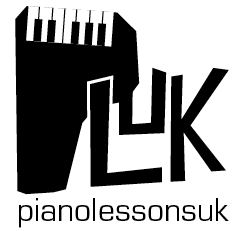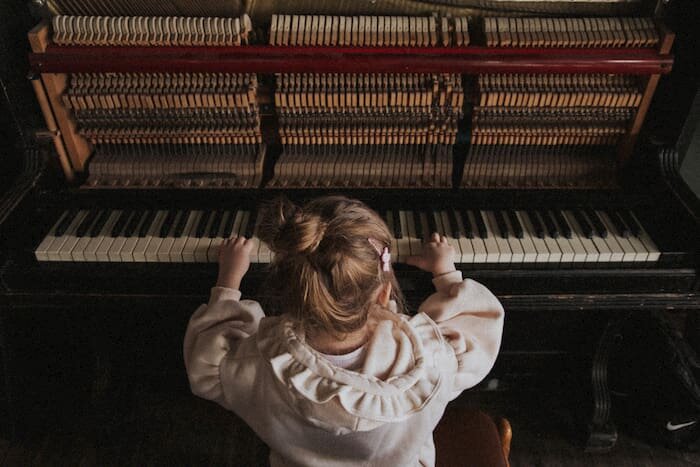What is the best piano for children?
/Piano lessons for children
Have your little ones recently started piano lessons? Or perhaps you might be thinking the time has come for them to start their musical journey?
Children can start learning from the moment they start hearing and feeling the world around them. It’s true that this foundation stage can start as early as before birth, but we tend to suggest that lessons start from 3 years old. But, it’s never too late to start, and older children will be able to progress rapidly.
At PLUK, we offer specialised children’s piano lessons for total beginners (usually age 3-8) as well as beginners piano lessons (usually age 8+ or for those able to play with two hands). With benefits such as improved focus, listening skills, patience, mental health, confidence, and hand-eye coordination, who wouldn’t consider piano lessons for their children a priority?
Once lessons start, they will need an instrument to practice on. Buying a piano can feel overwhelming. This simple guide will give you an overview of what to consider and suggests 5 great beginner pianos that might get you started.
Acoustic, electronic, or digital piano for children?
There are two different types of pianos to consider: acoustic and digital.
Acoustic piano
An acoustic piano is the classic style of piano favoured by most pianists. It is full size, has weighted keys, and is the type used for examinations. Acoustic pianos produce the best tone and sound, are beautiful pieces of furniture, and create a statement of intent for you and the learner.
The very fact that it’s there in the room acts as a silent reminder to practice as it can’t be put away. The mechanism inside creates a great curiosity for most learners, but especially children.
In order to experience the beautiful sound that they make to the utmost, you will have to service and tune the piano annually. We might be romantics, but there is a wonderful quality to a slightly out-of-tune piano. It’s as if you can experience aging and the passing of time in one moment. However, it’s not the best to practice on!
Digital piano
A digital keyboard/piano is one that recreates the sound of a real piano. They are often portable, can be used with headphones (meaning practice sessions don’t have to be endured by the entire household), and vary in price.
The most important thing to consider with a digital piano is the keys. They can be semi-weighted (very light) or weighted (emulating a real piano action). Semi-weighted is often easier for very young children, but you may find that they struggle to transition to an acoustic piano later.
A digital piano with weighted keys provides a good compromise. The sound quality can be quite similar to the acoustic piano. Generally, they are smaller than acoustic pianos (useful if space is an issue at home) and are kinder on the wallet too, if you are buying it new.
How much should I spend on a child’s first piano?
How much to spend depends on what your child’s musical goals are. If ABRSM exams are in the pipeline, we recommend investing in an acoustic piano as it will prepare them for exams and encourage practice.
It may not be feasible to invest in an acoustic piano, particularly if it’s not clear whether or not your child will take to playing. It’s worth getting an age-appropriate instrument for your child – toddlers usually start with a basic keyboard with 25-35 keys, whereas children over 8 years old can usually handle a full-size piano. One option is to start with a keyboard or digital piano and move to an acoustic piano when the time is right.
5 great beginner pianos for kids
Here’s are our top 5 beginner digital pianos to get started with:
The Melissa and Doug Grand Piano mini grand piano has 30 colour-coded keys. Designed for 4-6-year-olds, this piano will positively introduce toddlers to playing.
The Yamaha PSR-E263 Black Digital Keyboard is a great entry-level keyboard with 61 keys to play with. It is compact and portable and even runs off batteries for portable playtime!
The Roland Go Piano GO-61P Digital Piano has 61 keys and can seamlessly sync with your smartphone, making learning more accessible and fun!
The Casio CDP-S100 Compact Digital Piano is a fantastic affordable option, with 88 weighted keys offering more ‘realistic’ playing.
The Yamaha P-45 Digital Piano Keyboard is full size with a Graded Hammer Standard keyboard, meaning the keys play just like an acoustic piano.
If you’re still unsure about which piano is best suited to your child, you could discuss options with your piano teacher. We quite often have a number of relatively cheap acoustic pianos (between £200-£1000), so give us a call and we’ll see what works for you.
At PLUK, our teachers receive support and training to ensure they are well equipped to deliver an excellent standard of teaching on our children’s and beginner’s courses.
We also offer lessons in person in Bristol, Brighton/Hove, and online. Get in touch with us to find out more.


